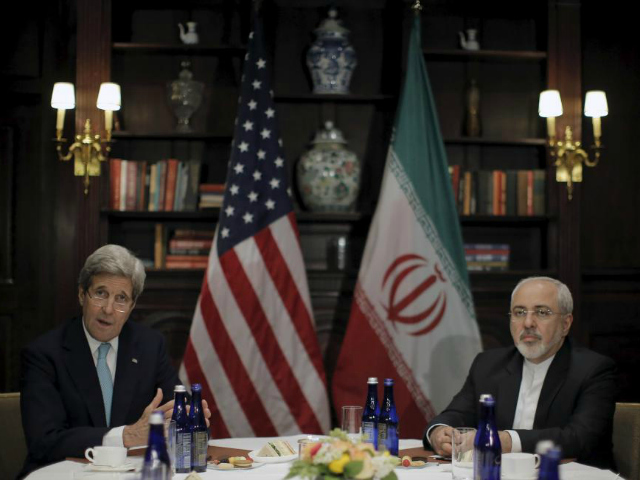According to a report by the Institute for Science and International Security, a Washington-based think tank with a retroactively unfortunate acronym, Barack Obama’s nuclear deal with Iran includes even more secret side deals than we thought – most, or all, of them favoring Iran.
“The exemptions or loopholes are happening in secret, and it appears that they favor Iran,” said the Institute’s president, David Albright, a former weapons inspector for the United Nations.
Reuters listed some of the report’s findings, adding that it could not independently verify them, including two exemptions that nullified restrictions on how much low-enriched uranium Iran can keep in its nuclear facilities; a provision that would allow Iran to continue operating 19 “hot cell” radiation containment chambers; and permission for Iran to store 50 tons of heavy water in Oman under its control, instead of selling it, as required by the nuclear deal.
The Institute noted that the low-enriched uranium could be processed into weapons-grade material, so the secret side deal makes it effectively impossible to know how much bomb material Iran could produce, on fairly short notice. The hot cells can also be “misused for secret, mostly small-scale plutonium separation efforts,” according to the report.
These secret modifications to the deal, which is formally known as the Joint Comprehensive Plan of Action (JCPOA), were made by a joint commission staffed by all parties to the deal, including the U.S. and Iran.
One source explained that without the last-minute modifications described in the Institute’s report, some of Iran’s nuclear facilities would not have been in compliance with the publicly-stated terms of the JCPOA when sanctions against Iran were lifted in January. That would have been rather embarrassing for the Obama Administration.
The White House claims these changes to the JCPOA were not kept secret from Congress, but at least one prominent critic of the nuclear deal, Senator Bob Menendez (D-NJ), who is a senior member of the Foreign Relations Committee, told Reuters he was “not aware” of the exemptions, and was never briefed on them.
Albright, who was a co-author on the report, said the exemptions have been kept secret from the public, and were not disclosed to Congress until after they were granted to Iran.
“Since the JCPOA is public, any rationale for keeping these exemptions secret appears unjustified. Moreover, the Joint Commission’s secretive decision making process risks advantaging Iran by allowing it to try to systematically weaken the JCPOA. It appears to be succeeding in several key areas,” wrote Albright and his co-author, Andrea Stricker, who has written extensively on the illegal nuclear trade and Iran’s nuclear program.

COMMENTS
Please let us know if you're having issues with commenting.